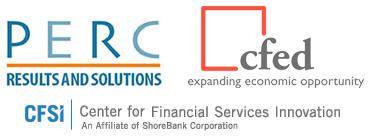 Support the Alternative Data Initiative
Support the Alternative Data Initiative
Whereas an estimated 70 million Americans are financially excluded not because of a bad credit history, but owing to a lack of sufficient credit history to generate a credit score;
Whereas it is estimated that financially excluded populations spend more than $4 billion in fees on credit from high priced lenders;
Whereas more complete and robust information from alternative non-financial sources, includeing the utility and telecommunications payment information advocated here, would have improved the quality of lending decisions, and thus would have mitigated the credit crisis to some extent;
Whereas access to credit for consumers/SMEs is a major challenge in the current credit crunch;
Whereas credit is necessary to build assets, given that the two primary means by which most people build assets—homeownership and small business ownership—both require taking on debt;
Whereas most energy utility and telephone service providers already report late payments and defaults to national credit bureaus directly or indirectly through collections agencies;
Whereas the vast majority utility and telephone customers pay their bills on time all the time;
Whereas both actual experience and rigorous empirical research have proven that fully reporting (reporting both timely and late payments and the amount paid/owed) certain types of non-financial customer payment data to national credit bureaus dramatically increases access to affordable sources of mainstream credit in the following manner:
- 22% of Hispanics and 21% of African Americans found were accepted for mainstream offers of credit who otherwise would have been rejected;
- 21% of those who earn $20,000 or less annually were accepted for mainstream offers of credit who otherwise would have been rejected; and,
- 14% of those aged 25 or younger and 14% for those aged 66 or older were accepted for mainstream offers of credit who otherwise would have been rejected, showing benefits for both younger and older generations;
Whereas both actual experience and rigorous empirical research has shown that fully reporting non-financial payment obligations to a national credit bureau enables the financially excluded to access affordable sources of mainstream credit at 4 times the rate of the comparable population for whom non-financial payment data is not reported;
Whereas both actual experience and rigorous empirical research has shown that fully reporting non-financial payment obligations to a national credit bureau does not result in those who are new to credit becoming overextended (in fact, the new to credit through alternative data population has been shown to be more credit responsible than the general population over time);
Whereas implementing this much-needed solution—permitting the full reporting of non-financial payment data to national FCRA regulated credit bureaus—is costless to the government;
Whereas this consumer-friendly approach is compliant with the Fair Credit Reporting Act (FCRA) framework as it empowers consumers with control of access of information, enables recourse in the event of an adverse action, and represents the apex of data privacy and security;
Whereas not permitting the inclusion of fully reported non-financial payment data in FCRA regulated databases represents a clear harm to those millions of Americans who are discriminated against in the credit, insurance, apartment rental, and workforce owing to insufficient information;
Upon considering the above sweeping social and economic benefits, especially for financially excluded groups comprised of the economically disadvantaged and certain minority populations, we the undersigned organizations wholeheartedly endorse federal law permitting energy utility and telecommunications firms to voluntarily choose to report positive and negative payment data to national credit bureaus for inclusion in FCRA regulated databases.
